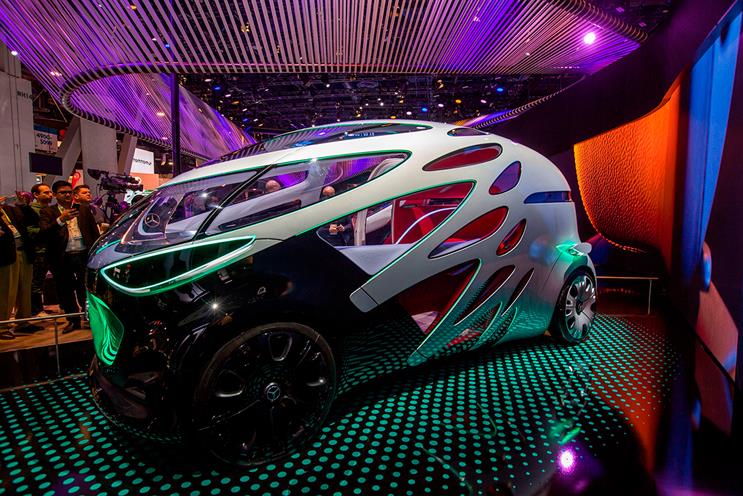The original Blade Runner was set in 2019 and its prediction of flying cars weaving their way in three dimensions through the cityscape hasn’t yet materialised – but we’re well on the way as the automotive sector undergoes massive upheaval.
Self-driving technology will soon be a fixture in our daily lives and car manufacturers must accelerate their thinking on the nature of the experience they are providing.
People tend to overestimate the amount of time it takes before new technology and products that enter the market are taken up by the public.
A shows a picture of Fifth Avenue in New York from 1900 and it’s full of horse-drawn carriages. Fast forward to 1913 and there’s not a carriage to be seen in another photo of the same street; it’s all cars. Few turn-of-the-century horse owners would have predicted that.
So, expect the shift to autonomous driving to come quickly. Lyft and Aptiv’s self-driving BMWs were ferrying around delegates at CES last week, and once the concept is fully developed, proven safe and on the market at an affordable price, mass take-up will follow fast.
The implications of this on auto brands are enormous and will change the nature of the experience of being in a car.
For more than a century, car companies have been engineering companies. Their development processes have been focused on how much technology can be fitted into a more or less predefined space at a more or less predefined cost.
As engineering technology has become more advanced but also more consistently similar across marques, and as pricing has become more competitive, distinctiveness has been eroded. It has become an industry of compromise – certainly at the mass-market level. But that could be about to change sensationally.
In the era of driverless cars, auto companies need to shift gears quickly to a whole new use case for cars and therein rediscover true distinctiveness for their brands.
Vehicle propositions in this new world cannot be based on performance and handling; all vehicles will have to travel within the same parameters, including acceleration, braking distance etc, otherwise the whole integrated autonomous vehicle and road system won’t work. So driver experience is no longer a basis for a brand proposition.
Neither is it likely that they will be able to base themselves on the prestige of ownership, because the very idea of "owning" a car is set to become a thing of the past.
Clever car manufacturers are realising that new propositions will not be centred on the action of mobility but on the array of potential new experiences that could occur while journeys take place.
Cars may become places to socialise, to rest, to dine, to work, to consume media, or maybe even to live. The possibilities are huge.
But car companies are going to have to think fast about where they choose to go with this, because these new use cases also open up possibilities for a raft of non-automotive brands to enter the mobility space.
Entertainment might be a compelling proposition for a fleet of autonomous Disney/Pixar vehicles, for example. Or a mobile dining experience might make for a decent business model for McDonald's. Hotel chains might have cause to invest in a hospitality experience, while the possibilities for Google, Facebook and Amazon are easy to imagine.
So if automotive brands are to retain and grow their relevance in the coming era, they need to think fast about the role they will play. Some are already well on track with that. BMW is demonstrating some upstream thinking by making a foray into designing co-living and co-working spaces via the Mini brand.
Mini launched its A/D/O creative and retail space in New York two years ago to facilitate collaboration and is now looking to move into innovative living spaces with a project in Shanghai this year.
If these tentative test-and-learn steps into external space and interior design help inform Mini about the experience it needs to deliver for the car of the future, it’s making a good investment.
Mini is creating spaces where people want to spend time in and they will associate that experience with the brand – a perfect foundation for credibility for some future lifestyle-inspired automotive design concept.
Manufacturers that don’t bring future-focused creativity and open-mindedness to their strategy will soon be seen in the rear-view mirror of those that do.
Jim Prior is global chief executive of Superunion


